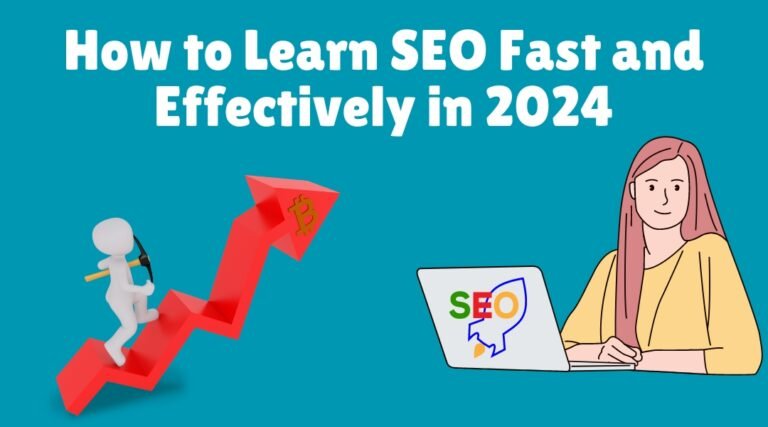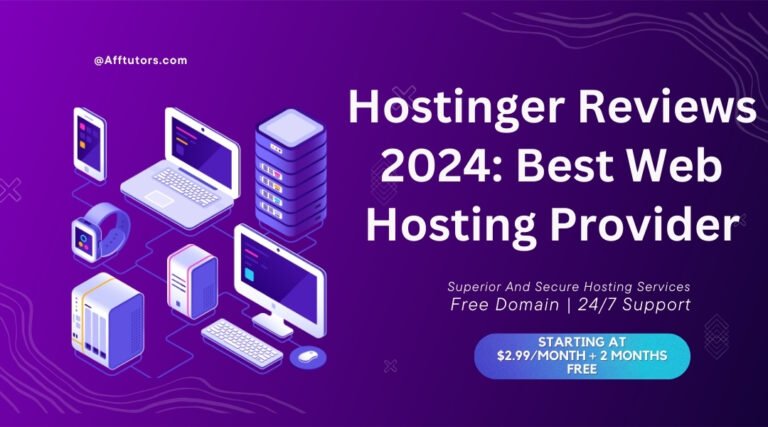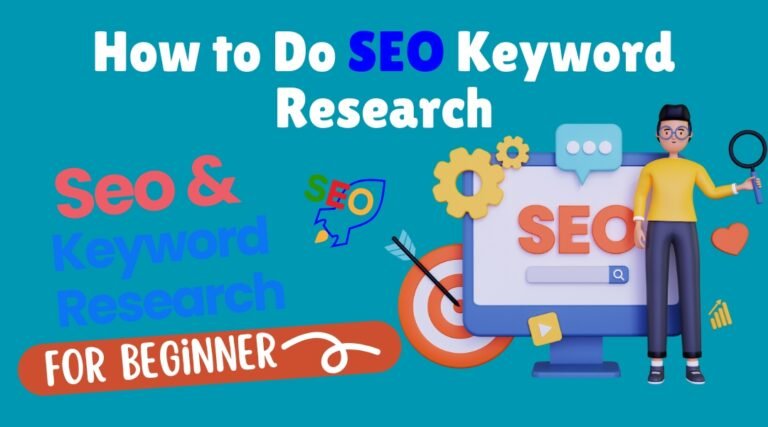Complete SEO Course For Beginners 2024: Rank #1 on Google

Table of Contents
Introduction To Complete SEO Course for Beginners
Welcome to the Complete SEO Course for Beginners! If you’ve ever wondered how to get your website to rank #1 on Google in 2024, you’re in the right place. SEO, or Search Engine Optimization, is the key to driving organic traffic to your site, making it essential for anyone looking to succeed online.
Understanding SEO
What is SEO?
SEO stands for Search Engine Optimization. It’s the process of optimizing your website to rank higher on search engine results pages (SERPs). This involves various strategies and techniques designed to make your site more attractive to search engines like Google.
How Search Engines Work
Search engines use complex algorithms to determine the relevance and ranking of web pages. They crawl and index content, then analyze it based on numerous factors including keywords, site structure, and user engagement.
Keyword Research
Why Keywords Matter
Keywords are the terms people type into search engines when looking for information. By targeting the right keywords, you can attract the right audience to your site.
Tools for Keyword Research
There are several tools available for keyword research, such as Google Keyword Planner, Ahrefs, and SEMrush. These tools help you find keywords relevant to your niche and estimate their search volume.
Long-tail vs. Short-tail Keywords
Long-tail keywords are longer and more specific phrases, while short-tail keywords are broader. Long-tail keywords often have less competition and can be easier to rank for, making them ideal for beginners.

On-Page SEO
Title Tags and Meta Descriptions
Title tags and meta descriptions are crucial elements of on-page SEO. They tell search engines and users what your page is about. Make sure they are compelling and include your primary keywords.
Header Tags (H1, H2, H3, H4)
Header tags help organize your content and make it easier for search engines to understand the structure of your page. Use them wisely to break up your content into manageable sections.
SEO-Friendly URLs
Your URLs should be clean and include relevant keywords. Avoid using long, complex URLs with unnecessary parameters.
Internal Linking
Internal linking helps search engines crawl your site more effectively and can improve user experience by guiding visitors to related content.
Content Optimization
Content is king in SEO. Ensure your content is high-quality, engaging, and optimized with relevant keywords. Use images, videos, and other media to enhance the user experience.
Technical SEO
Site Speed and Performance
A fast-loading site is crucial for both user experience and SEO. Use tools like Google PageSpeed Insights to analyze and improve your site’s performance.
Mobile-Friendliness
With the majority of searches now happening on mobile devices, having a mobile-friendly site is essential. Use responsive design to ensure your site looks good on all devices.
XML Sitemaps
An XML sitemap helps search engines understand the structure of your site and find all your pages. Submit your sitemap to Google Search Console for better indexing.
Robots.txt
The robots.txt file tells search engines which pages they can and cannot crawl. Make sure it’s correctly configured to avoid blocking important pages.

Off-Page SEO
Backlink Building
Backlinks from reputable sites signal to search engines that your content is valuable. Focus on building high-quality backlinks through guest blogging, partnerships, and outreach.
Social Media Signals
Social media activity can indirectly impact your SEO. Share your content on social media to increase visibility and drive traffic to your site.
Guest Blogging
Guest blogging is a great way to build backlinks and reach a broader audience. Find reputable blogs in your niche and offer to write valuable content for them.
Content Marketing and SEO
Importance of High-Quality Content
High-quality content attracts visitors and encourages them to stay on your site longer, which can boost your SEO. Invest time in creating content that is informative, engaging, and valuable.
Content Types (Blogs, Videos, Infographics)
Diversify your content with blogs, videos, infographics, and other media. Different types of content can reach different segments of your audience and improve engagement.
Content Promotion Strategies
Promote your content through social media, email marketing, and other channels. The more visibility your content gets, the better it will perform in search rankings.
Local SEO
Google My Business
If you have a local business, setting up and optimizing your Google My Business profile is crucial. It helps you appear in local search results and attract nearby customers.
Local Citations
Local citations are mentions of your business on other websites, such as directories and review sites. Consistent citations with accurate information can improve your local SEO.
Reviews and Ratings
Positive reviews and ratings on platforms like Google and Yelp can boost your local SEO and attract more customers. Encourage satisfied customers to leave reviews.
Measuring and Analyzing SEO Success
Google Analytics
Google Analytics is a powerful tool for tracking your website’s performance. Monitor metrics like traffic, bounce rate, and conversion rate to understand your SEO efforts’ impact.
Google Search Console
Google Search Console provides insights into how your site is performing in search results. Use it to track your rankings, find and fix errors, and optimize your site.
Key Metrics to Track
Important metrics to track include organic traffic, keyword rankings, backlinks, and user engagement. Regularly review these metrics to gauge your SEO success and adjust your strategy as needed.

SEO Trends to Watch in 2024
AI and Machine Learning in SEO
AI and machine learning are becoming more integral to SEO. Tools that leverage these technologies can provide insights and automation, helping you stay ahead of the competition.
Voice Search Optimization
With the rise of voice assistants, optimizing for voice search is crucial. Focus on natural language and long-tail keywords that mimic how people speak.
Core Web Vitals
Core Web Vitals are metrics related to user experience, such as loading speed, interactivity, and visual stability. Improving these can enhance your site’s SEO performance.
Common SEO Mistakes to Avoid
Keyword Stuffing
Avoid overloading your content with keywords. This can lead to a poor user experience and penalties from search engines.
Ignoring Mobile Users
Ignoring mobile optimization can hurt your rankings, as search engines prioritize mobile-friendly sites. Ensure your site is responsive and easy to navigate on mobile devices.
Neglecting Technical SEO
Technical SEO is just as important as on-page and off-page SEO. Neglecting aspects like site speed, mobile-friendliness, and proper indexing can hinder your SEO efforts.
Conclusion
SEO is a multifaceted discipline that requires continuous learning and adaptation. By understanding the basics and staying up-to-date with the latest trends, you can effectively optimize your site and achieve higher rankings on Google. Start implementing these strategies today and watch your website climb the search engine ranks.
FAQs
1. How long does it take to see results from SEO? SEO is a long-term strategy, and it can take anywhere from 3 to 6 months to start seeing significant results. Patience and consistency are key.
2. What is the difference between on-page and off-page SEO? On-page SEO refers to optimizing elements on your website, such as content and meta tags, while off-page SEO involves external factors like backlinks and social media signals.
3. Can I do SEO on my own, or do I need to hire a professional? You can certainly start with SEO on your own using the resources available online. However, for more advanced strategies, hiring a professional might be beneficial.
4. How often should I update my SEO strategy? SEO is constantly evolving, so it’s important to review and update your strategy at least every 6 months to stay current with best practices and algorithm changes.
5. What are some free tools for SEO? Some free SEO tools include Google Analytics, Google Search Console, Ubersuggest, and MozBar. These can help you get started without incurring costs.






